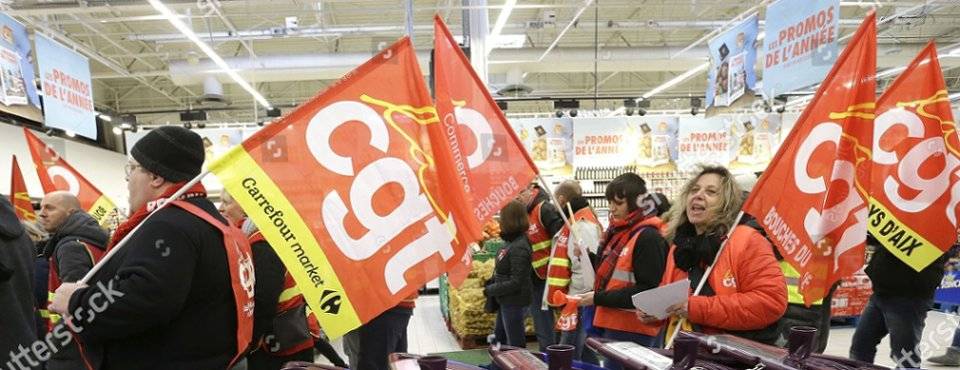



If the videos showing this traffic have a furtive, hasty aspect, it might be because the French National Railway Company (SNCF) management, which owns the television stations, only wants to allow pro-management news shown on TV. The SNCF bosses insist that TV crews have a SNCF minder to go with them or leave the premises.
The SNCF is also playing “fool-you” regarding the level of participation in the strike. French workers, who have an individual, constitutional right to strike, don’t get paid for days they strike. If on an SNCF-worker’s weekend — their days off — they don’t file that they are on strike, they do get a day’s pay.
Another trick of the SNCF bosses is to report the level of strike participation of all its workers, which is between 30 and 45 percent. They fail to report the rate for their operating personnel — those who make the trains run. This is much higher, from 70 to 85 percent.
Two other major economic impacts are in the areas of tourism and freight.
In 2017, tourism directly contributed about 83 billion euros to the French gross domestic product. Hotel industry spokespeople have estimated that the SNCF strike has cut tourism by 10 percent. This cut is a tremendous blow to industry profits.
The other major economic impact is to freight. The SNCF has privately owned competitors for its freight business, which control about 40 percent of the market. The strike also hits these competitors because the workers who control all the signals — including those the freight lines need — are members of the unions on strike.
One firm, Lahaye Global Logistics, which runs a daily, round-trip rail freight service between Rennes and Lyon, said it would lose 20,000 euros for each strike day because it would have to shift from rail to trucks. Grain exporters and bulk chemical firms also face significantly higher costs. (tinyurl.com/ydz8fv77)
In its ongoing genocidal campaign against the Palestinian people, Israel used drones May 2 to…
Palestinian and regional factions condemned the Israel Occupation Forces’ attack today on the Al-Dameer (Conscience)…
A message for May Day: ‘Workers of the world unite, Palestine is our fight!’ International…
Africa is rising, the days of colonialism are finished: This is the call being echoed…
Several immigrant groups and their supporters rallied outside the federal courthouse in Philadelphia on May…
Thousands of construction workers and teachers in at least seven provinces throughout Panamá took to…